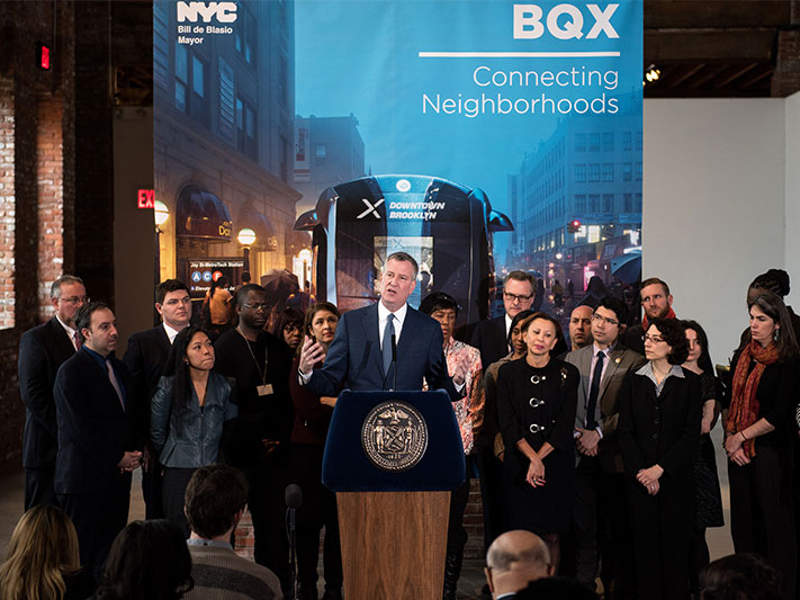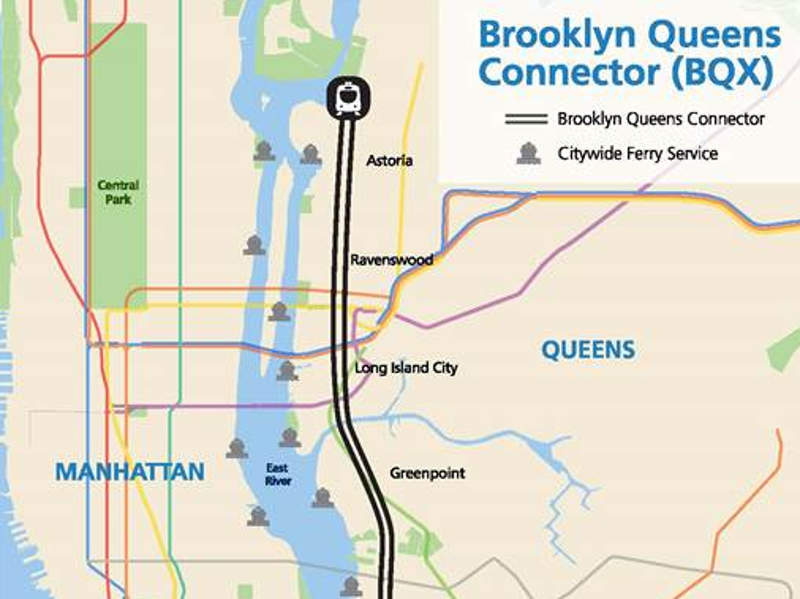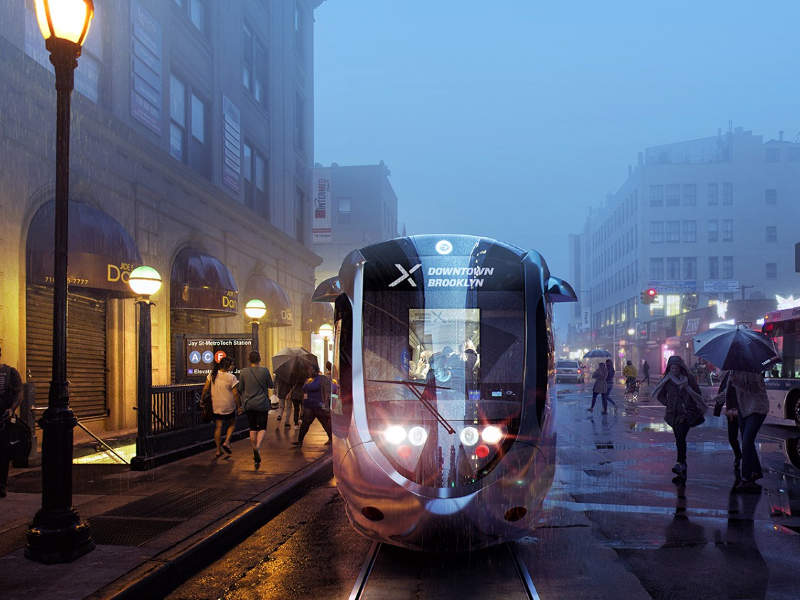The Brooklyn-Queens Connector (BQX) is a proposed 26km-long light rail project between Sunset Park in Brooklyn and Astoria in Queens, New York, US. It is intended to provide quality transit-oriented service to under-served areas along the Brooklyn and Queens waterfronts.
The light rail transit (LRT) service is expected to be New York City’s first new streetcar transit line after 50 years and one of the biggest urban streetcar systems in the country.
The project is being undertaken by the City of New York together with the New York City Economic Development Corporation.
The environmental impact study for the project is anticipated to be carried out from January 2019 to September 2020, while the Uniform Land Use Review Procedure (ULURP) will be held from April to December 2020.
Preliminary design, delivery method procurement, and final project design and management studies are expected to take place between January 2021 and June 2024. Construction on the project will begin in January 2024, with the aim to begin operations in June 2029.
Brooklyn-Queens Connector route and station details
The proposed BQX line will pass through Astoria, Ravenswood, Long Island City, Greenpoint, Williamsburg, Brooklyn Navy Yard, DUMBO, Downtown Brooklyn, Brooklyn Heights, Cobble Hill, Red Hook, Gowanus, and Sunset Park. The distance between successive stations is expected to be approximately 1km.
The light rail system will connect to approximately 30 bus routes, 15 subway lines, ten ferry landings, 116 Citi Bike stations, and six Long Island Rail Road (LIRR) lines.
It will connect 13 New York City Housing Authority (NYCHA) developments that house 40,000 residents.
A number of innovation clusters such as the Brooklyn Army Terminal, the Brooklyn Navy Yard, and the Cornell Tech campus located on the Roosevelt Island are situated along the route.
Rolling stock for BQX light rail project
The BQX transit system will use state-of-the-art zero-emission streetcars. The transit cars will operate 24 hours a day at an interval of five minutes during peak hours.
The streetcars will primarily run in dedicated lanes that are separated from traffic and bicycles.
Financing for Brooklyn-Queens Connector project
The estimated cost of the proposed Brooklyn Queens Connector project is $2.73bn.
A non-profit organisation is expected to be set up by the city to raise the required capital for the development of the project.
The planning committee also plans to fund the project through taxes from commercial and multi-family properties along the route.
Benefits of the BQX light rail project
The BQX project will connect approximately 400,000 residents to employment hubs along the line.
It line is expected to provide efficient, reliable, and affordable transport service to approximately 50,000 travellers a day during the first year of operation, while the average daily ridership is expected to reach 90,000 by 2050.
The LRT service will improve connectivity with the existing public transit service by increasing accessibility to academic institutions, parks, job opportunities, and cultural centres located within the corridor.
It will cut travel time by up to 20 minutes each way compared to the existing transit systems, while the fare for the service is the same as a single-ride on a Metrocard.
The project is expected to generate revenue of more than $30bn for New York City and approximately $1.4bn in value capture over the next 30 years. It is expected to create 28,000 temporary jobs during the engineering, construction and development phases, by 2045.





